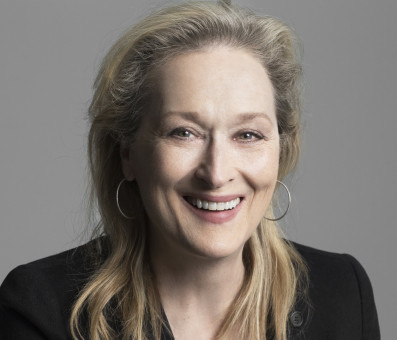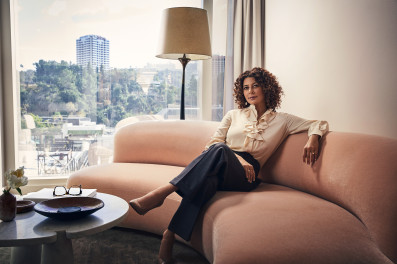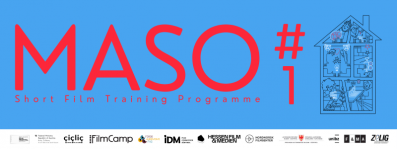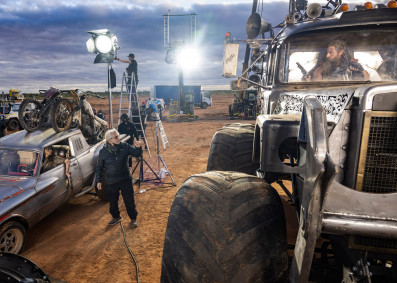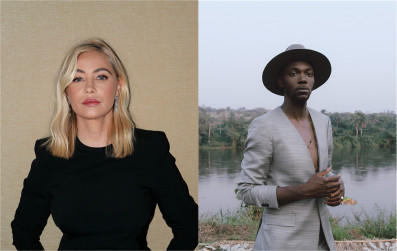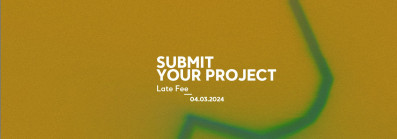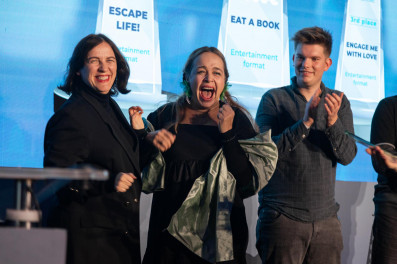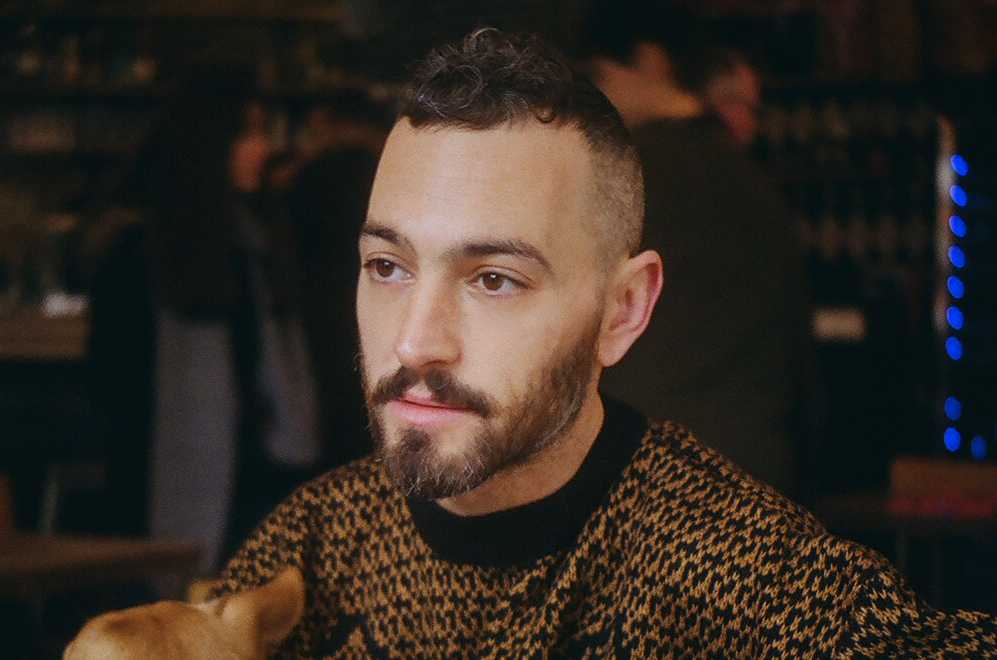
Interview with Yotam Ben-David director of "Have you seen that man?"
Film will have its screening in European Shorts programme at Sarajevo Film Festival
For Duart Platform our Tettyo Saito had the opportunity to talk with Israeli director Yotam Ben-David. Born in 1987, Yotam studied film the Minshar School of Arts in Tel Aviv, and graduated with honours. His films were selected and won awards at numerous festivals worldwide among which: FIDMarseille, IndieLisboa, Festival du cinéma de Brive, Jerusalem International Film Festival among others. He currently lives in Paris, France where he is developing the script for his first feature-length film titled "Over Time and Distance". The project was selected to participate at Cannes Film Festival's Atelier Cinéfondation 2019. His latest film Have you seen that man, the cause of this interview, will have its screening in European Shorts programme at Sarajevo Film Festival.
Why do you want to become a film director? And how did you become it?
When you are a kid it's hard to understand what exactly a film director is, and what he does. So I said I want to be an actor and I used to set up plays and imagine making films without understanding that what I'm doing is actually directing. It was good practice for making independent films because it was about playing with what is available. I loved films - especially musicals - and I would watch them obsessively and learn them by heart. When I became a teenager I started to understand what it is exactly to direct a film and I understood that it's not the acting that I'm interested in, but actually the whole creation of a world, moments, images. Around the same time, I started watching films in the cinematheque that was next to my high school in Jerusalem. Because I lived far from the city I would often have to wait a long time after school was over, for the ride back to my village. So I would pass the time in the cinema. Through the films I came across there - I would watch whatever was playing at the moment - I also understood that a film can be more than entertainment. That it's a very complex form of art that can express something about the world that no other art form can express.
When you're interested in film, what films did you watch?
I think once I realized that a film has a very broad potential to express emotions and ideas, I started looking for this type of expression. Suddenly I was exposed to different points of view, from different periods and cultures, wild imagination or brutal realism - there was so much room for what one can do with this art form. I could not only look at something that I didn't see before but also see it through the eyes, a point of view that is new to me. I think it is a very interesting (and political) way to expand how we experience the world. Cinema can both protect and also make room for the most fragile and overlooked qualities of life and preserve them in a way that no other art form can. It can be a language people do not speak anymore or something like the certain way wind goes through a tree or a feeling we once felt and did not think about since. My interest in cinema is always in evolution, and it depends on where I am in my life and where the world is, but I am very passionate about finding new and rebellious ways to refer to the world honestly.
What is the starting point of your film "Have you seen that man?"? Your own experience, some folklore or other things?
Actually the film was made in a 10-day residency I won as a prize for my previous film "Thunder from the Sea" at FIDMarseille. I was invited along with two other directors to the village of Slon in Romania to shoot a film. It was a very surprising turn of events because my films so far took place in Israel, in the village where I grew up and in the participation of my family members and friends. So from making films about and with my most intimately close environment, to shooting a film in a country, I visit for the first time was quite a shift. The residency was built in such a way that I could have some initial information from afar about what is possible, some photos of locations and the residents of the village who are willing to be the actors. But the rest - location scouting, auditions and all other pre-production aspects would be made during the 10 days stay in the village - including the 3 days of shooting. So it is very dense for any kind of film, and almost impossible for a film in a place you just arrived at. I wanted to make a film that despite those conditions would be respectful to the place I come to as a visitor, as well as to me as a filmmaker and what I am interested in. I developed a script months before my arrival hoping to arrive as prepared as I can but also leaving enough room to discover the place and make adjustments. Unfortunately, when I arrived I realized that the location on which I built the whole script did not authorize us to shoot in it, and so I spent the first few days trying to adjust the script but eventually had to discard it altogether - only two days away from the shooting - and write a new script. So eventually instead of planning carefully and preparing, the film was born out of a more intuitive place, which was both very challenging and frustrating but also very liberating.
You said about this film on Facebook; The challenge to shoot a film in a language I don't speak, a culture I don't know. So, why did you choose Romania for your new adventure? What in Romania are you attracted with?
You could say that Romania chose me and not the other way around. But I love the Romanian cinema. Some of what is referred to as "the Romanian new wave" had a big influence on my films since I was a student in film school. As I said, I usually make very personal films that stem from my own culture and experience. So I knew that the only way I can make this film and feel an emotional connection to it would be to find similarities between where I come from and Romania. Surprisingly, it wasn't very difficult. I think that there is proximity in the mentality between Romanian culture and the Israeli one. Not to mention that there are a lot of jews of Romanian descent in Israel, and Romanian food can be found in many households and restaurants. With Ana Draghici (the film's DOP) we talked about Manele music that is influenced by Turkish and Greek music and how in Israel we had a similar genre of music - in both cases an underground culture that grew from the poorest and most oppressed parts of society - so the final song in the film is in a way a tribute to that. I also discovered that my grandmother has Romanian roots (and the Romanian crew shared with me the funny stereotype of people coming from her region). So I would say it was a process of looking for points of affinity, and thanks to the local crew that had made the bridge between the cultures it was much easier. After living in Paris for five years, it was almost comforting to be in a place where the people are direct and almost brutally honest like where I come from.
When audiences watch this film, they must be interested in this beautiful village. Where is this place? Is it a famous place in Romania?
It's a very small village called Slon that is located an hour and a half drive from Bucharest, in the mountains. From my short stay, I got the impression that even people living in nearby cities don't necessarily know it, because it's so small. I think what interested me the most as I walked the village and talked to people was how much they were able to preserve a traditional lifestyle but also to see that it takes a toll on the village, as many people leave - especially the young. So you see 90-year-old women working from 5 in the morning with the energy you do not understand where they bring from, carrying heavy loads in the steep roads. But at the same time, you see much fewer men and young people, because many leave to work abroad or too big cities. As someone who had left his own country, I could relate to that deep, this slow disintegration. I think this type of human movement is very representative of the processes our world is going through. As more and more people move to big cities, as corporations and American colonialism take over and gradually erase whole cultures, languages, folk stories and mystical beliefs. This is the heart of this film.
The first shot of this film is one of the most impressive things. Under the purple sky, one gigantic tree stands still, but there is a man's dead body on the soil. This sequence is like a sinister picture drawn in the 19th century. How did you decide to use this sinister shot as a first shot?
My films often start with images and only after a story is formed. In this case, as I said, I was confronted with a situation I never dealt with before while making a film: having to write a script two days before shooting. So the whole process was very different from how I usually work and I had to somehow assemble together some thoughts and ideas and to see how it can come together into a cohesive creation. I think I was firstly inspired by the village itself, there is something almost medieval about it and a bit mystical - people working in agriculture with traditional methods, the small houses are built in the same traditional technique, people pass through one neighbour's yard the other yard in order to get around etc. I knew that since I am making a film in a place I don't fully know, I wanted it to not be fully realistic, that it would be clear that it is an impression rather than documentation. So unlike my previous films, I also allowed myself to introduce into the film things that I usually shy away from, like a dead body or the possibility of mystical forces. Trying to find a new idea, I read a lot of stories from the Romanian mythology and I also looked at a lot of Christian iconography paintings - an element that is very dominant in the houses of people and also in the beautiful church of the village. I also tried reading some short stories by Chekov thinking that some of his stories take place in small villages. It was a process of trying to stimulate the imagination and hoping it would somehow lead to someplace in the short time that I had. And somehow it did, the opening shot and the dead man, then the passage of fire through the village and the stories, it gradually started making sense but I never knew until the editing room if it would actually work.

And the cinematography by Ana Draghici is also impressive. Using natural light and fire, she illuminates the village and characters' face in a breathtaking, sinister way. With Ms. Draghici, how did you construct this cinematography? And how is the collaboration with Ms. Draghici, one of the most promising, talented Romanian cinematographer? Is there a special story behind its shooting?
It was great working with Ana because along with her experience and talent we also got along really well and pretty quickly became friends. So even before I knew what we will shoot, I already understood that we share a similar taste in films and a certain point of view about the world, so obviously she understood my vision very quickly. The script was built out of specific shots, like that of the dead man. This use of light was something that I already worked with in my previous films, using available light and fire as something that takes an active part in the investigative route we go through in the film. I wanted to see how I could further develop this aesthetic and since we had very limited means we were both worried that the vision is too ambitious. But Ana is such a professional and perfectionist and she wasn't afraid to take that risk and to make sure it turns out beautifully. We tested the camera and the lighting until we reached what we were looking for. But we were also playful and each time one of us would find something that might be interesting, we would try it out. I like this way of working where there are carefully planned ideas but also playfulness and surprise and Ana was the perfect partner in crime for that. Her task wasn't easy also because she was preparing and shooting two other short films at the same time, each with a very different aesthetic. But she was so committed to each of us and she brought to the set not only her professionalism but also her personality, which played an important role also in making the actors - especially the old women in the film - feel at ease and to trust us.
I'm very interested in how you write its screenplay. In this film, children ask old women about the dead man, they talk about him and the information gets complicated. The style of this film is like weaving oral literature. So, how did you write the screenplay? Is it inspired by folklore in Romania?
I'm really glad you used the words oral literature. This is something that I somehow deal with in my other films as well, the way people tell stories and how the accumulation of stories form a sort of a portrait. In the Jewish tradition, the idea of Oral Torah (and heated debates around it) is very central to the Jewish culture. I find this idea very beautiful because it puts an emphasis and responsibility of passing on traditions and history to the next generation, and it's an active act between people. It also leaves room for misinterpretation and error which I find beautiful too, especially in the age of digitized information and statistics - it's human. It is a very political act because usually history is left in the hands of people in positions of power to decide what is important and should be preserved and be called history, and whatnot. And here, passing history orally, it's the people who take charge of their own narratives and preserving it. Films are in a way a popular history passed on as well.
In this particular script, I wrote something that was more open - it had the structure and the visual ideas and it had that central question. Then we went to women in the village and asked them for stories, heard many different stories and built a narrative with the best stories and best storytellers. I liked the openness of this question and how it allowed us to hear very different stories, different answers that somehow relate to one another. I also liked this repetition of the question which is something that exists in Jewish holiday chants as well, where a question is repeated over and over but the answer changes, adding layer by layer. I liked the idea of using a short film to create something that is more similar to poetry or a folk song. The meaning or interpretation lies in the connection between moments and words, but similarly to a good poem, there is more than one way to interpret the connections, the choice of words. The best poems and literature and films leave some open threads, something that is not fully investigated - a potential. And since this project was chaotic and random in more than one way - starting from the very idea to shoot a film in a small village in Romania up to the fact that many things were not in our control, I decided to embrace this randomness even further and to make room for it as part of the film. It resonates the chaos and randomness of life itself.
Do you have a plan to make a new short or feature? If so, please tell our readers about it.
I'm currently working on a few projects - though I have to say that the idea of creating and imagining the future and artistic expression in it these days, is not an easy task when everything is so uncertain. I am working on financing my first feature-length film titled Over Time and Distance also produced by Jèrôme Blesson from La Belle Affaire productions. We were selected to present the project in Cannes film festival last year at L'atelier Cinefondation and we are in the process of funding. The film talks about a young man who, while going through a separation from his boyfriend, starts questioning his future living in his country. While his mother is facing the ghosts of the political past of the region (and of the country) and the falling apart of her marriage. It takes place in the village where I grew up, between Jerusalem and Tel Aviv and similarly to this film it also incorporates the oral history of that region but in a different way. I'm also working on another project that will take place in Paris as a Babylon of immigration, but it is too early to say exactly what it is.
Written by: Tettyo Saito



